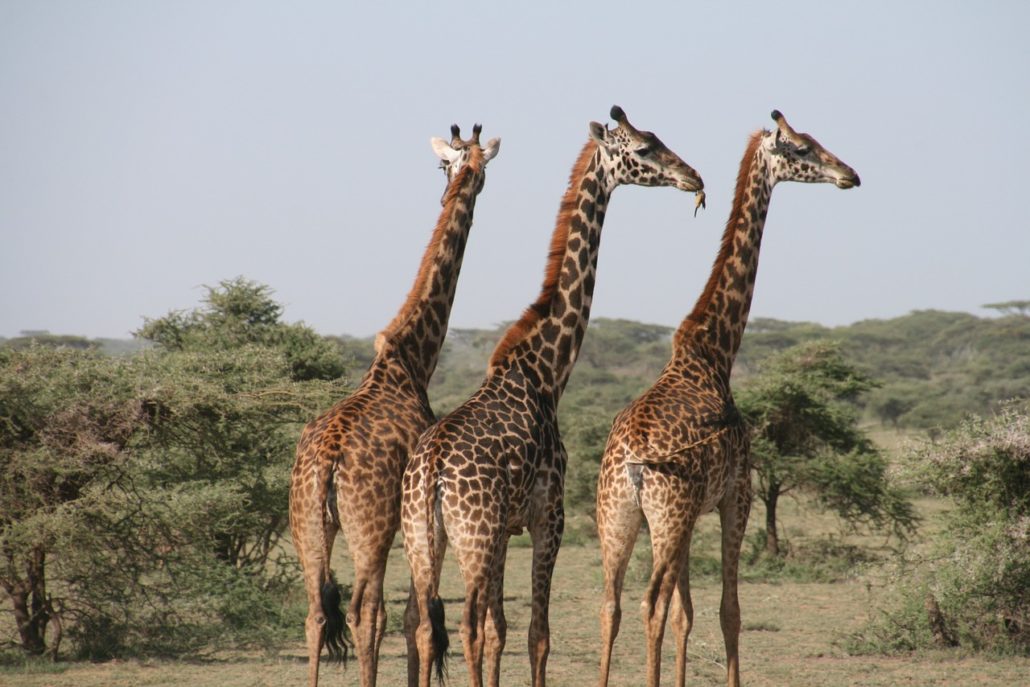Your Adventure Begins
Day 1. Arusha National Park
After breakfast we drive to Arusha National park for some game viewing and some relaxed game walking. This beautiful park is located only 32 km (20 mi) northeast of Arusha. It covers an area of 137 sq km’s (58 sq mi) and is known as “Serengeti ndogo” meaning “little Serengeti”. The peaks of Mt Kilimanjaro and Mt Meru surround the park and can be seen on a clear day. The black and white colobus monkey is the park’s mascot and can been seen swan-diving from branch to branch. The park also contains blue monkeys, olive baboons, elephants, hippo, leopard, hyena, zebra and antelope. The park is famous for it’s 400 species of migrant and resident birds.
Overnight stay at Kibo Palace.
Day 2. Lake Manyara National Park
After breakfast we drive to Lake Manyara National Park and enjoy a game drive in this picturesque park that is the perfect place to end your safari. Manyara is a shallow, alkaline lake that is part of the Rift Valley wall; the lake is at the base of this dramatic western escarpment giving it a beautiful and serene setting. In addition to this peaceful setting, Lake Manyara’s main attractions are its rich bird life, tree climbing lions and its hippos which you can see at a closer range than any other places.
Overnight stay at Lake Manyara Kirurumu Lodge.
Day 3. Lake Manyara/ Lake Natron/ Ol Donyo Lengai
Today we drive from Lake Manyara to Lake Natron, passing some varied landscape, from dry rocks to lush plains, along the way. Lake Natron is one of the most original landscapes in East Africa. It is a wide soda lake that is home to the Maasai, which live here still in traditional ways and are hardly influenced by the modern culture. It is also the home for millions of birds, and therefore great for bird watching. Late afternoon we will take a walk to the lake for a close look at the hundreds of flamingos with the amazing massive Ol Donyo Lengai volcano in the backdrop. Tonight we recommend you go for an early night as you will wake up at midnight to start your climb of Ol Donyo Lengai.
Overnight stay at Lake Natron Mwaivaro Lodge.
Day 4. Ol Donyo Lengai Trek (2,896 meter above sea level)
The trek up Ol Donyio Lengai, an active volcano, the highlight of your Tanzanian safari! Ol Donyio Lengai is located in the heart of the Great Rift Valley and has erupted fifteen times in the past century. This challenging hike to the top of the “Mountain of God” offers an opportunity to view molten lava. From there you have great views of the surrounding landscapes, including the plains of the Serengeti. It is very steep and we will walk slowly with our Masaai guide. It takes about 5 hours to reach the summit, just in time for sunrise and 4 hours to come down.
Overnight stay at Lake Natron Mwaivaro Lodge.
Day 5. Drive to Serengeti
We leave Ol Donyio Lengai for a drive to the Serengeti where breathtaking landscapes, endless plains and abundant wildlife await you. The Serengeti is a UNESCO World Heritage Site that is the best-known wildlife sanctuary in the world. The Northern corridor of the Serengeti is the ideal location for marveling at the annual migration of large herds of animals at this time of the year. Often spotted in the Serengeti are elephants, hippos, lions, zebras, wildebeests, cheetahs, leopards and more.
Overnight stay at Serengeti Sopa Lodge.
Day 6. Center Serengeti
Today is a full day of game driving. We continue to explore the vast plains of the Serengeti and we look for prides of lions and large herds of wildebeests pounding the plains, while hungry predators such as lions, leopards and cheetahs try to prey upon the youngest and weakest members of the herds.
Overnight stay at Serengeti Ndutu Lodge.
Day 7. Serengeti/ Olduvai/ Ngorongoro Crater
Today we leave the Serengeti and drive to Ngorongoro Crater passing some very scenic landscapes. En route to the Ngorongoro crater we stop by Olduvai Gorge, a world-renowned archeological site that has been called the “Cradle of Mankind”.
Overnight stay at Ngorongoro Sopa Lodge.
Day 8. Ngorongoro Crater
Today is a full day of exploring the Crater floor for a very rewarding day of wildlife viewing. The Ngorongoro Crater is the largest unbroken volcanic caldera in the world covering approximately 260 sq km’s with walls rising 600 meters from the crater floor. Before the Ngorongoro Volcano exploded and collapsed 2 million years ago, it was one of the world’s tallest mountains. Now, it is home to more than 30,000 large mammals – mainly gazelle, buffalo, eland, hartebeest and warthog – and has the highest predator density in the world.
Overnight stay at Ngorongoro Sopa Lodge.
Day 9. Empakaai Crater Hike
This morning we are driving to the Empakaai Crater in the heart of the Crater Highlands, a range of extinct volcanoes that rise steeply from the side of the Great Rift Valley. Our hike will take us to the floor of the Crater, it is one of the most beautiful places on the Crater Highlands with much of the floor covered by a jewel like lake. Our hike will last about 3 hours and you will walk along the lakeshore teeming with thousands of pink flamingos with the occasional hyenas chasing them. The crater is 6 km in diameter with 300 meter sides. The trail down is limited to only a few spots. An armed ranger must accompany hikers into the crater as buffalo and other animals are present. The eastern side of the rim has highland forest. At the end of your hike you will be driven back to Ngorongoro Sopa Lodge for overnight stay
Overnight stay at Ngorongoro Sopa Lodge.
Day 10. Mto wa Mbu/ Maasai Village/ Farming Tour / Cycling Tour
After breakfast we drive to Mto wa Mbu, a green oasis located near Ngorongoro Crater where you can see a mixture of different Tanzanian cultures, while enjoying the tropical vegetation at the foot of the Rift Valley. We arrive at E Unoto Retreat for a lunch. In the afternoon, we have a variety of cultural activities you can choose from.
You can opt for a Farming Tour of the Mto wa Mbu area where a guide will show you the different varieties of bananas grown and other crops, explain the old irrigation system in and how it is managed by the local people. You can also opt for a Maasai Village Tour, and see how Maasai tribes still hold their culture as solid as it was before western cultures arrived in Tanzania. Your guide will explain every aspect of the life of a Maasai, you will get a chance to venture inside their huts and enjoying a dance performance. Another option this afternoon includes a bicycle tour where you can cycle to a Maasai Village.
Overnight stay at E Unoto Retreat.
Day 11. Drive back to Arusha
This morning you have the option to do a last game drive through Lake Manyara National Park, which is a short drive from our lodge.
After lunch we drive back to Arusha for an overnight stay at Kibo Palace or for a transfer at the airport onto your next destination.



